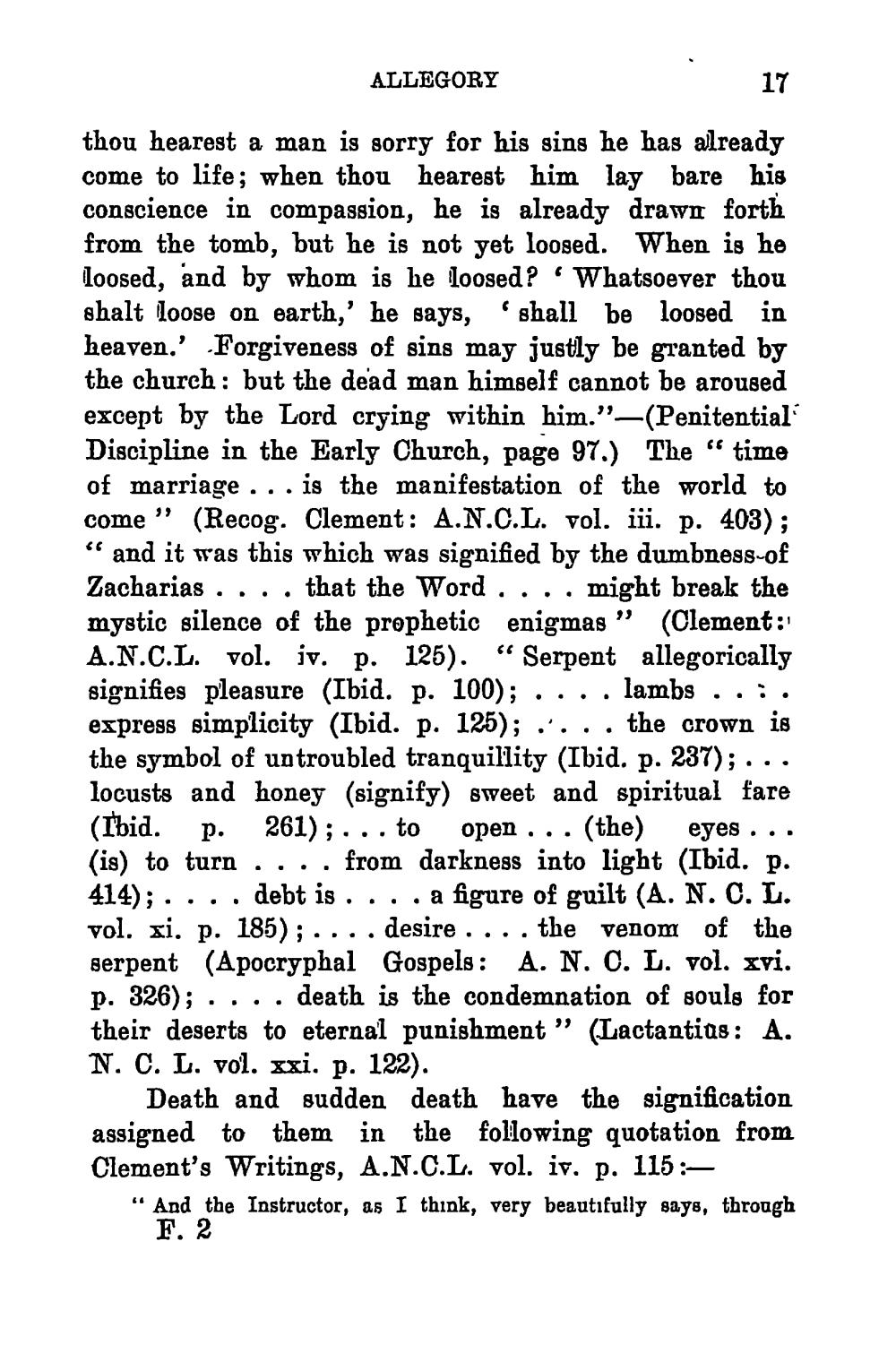________________
ALLEGORY
17
29
....
thou hearest a man is sorry for his sins he has already come to life; when thou hearest him lay bare his conscience in compassion, he is already drawn forth from the tomb, but he is not yet loosed. When is he loosed, and by whom is he loosed? Whatsoever thou shalt loose on earth,' he says, 'shall be loosed in heaven.' Forgiveness of sins may justly be granted by the church: but the dead man himself cannot be aroused except by the Lord crying within him."-(Penitential Discipline in the Early Church, page 97.) The "time of marriage . . . is the manifestation of the world to come (Recog. Clement: A.N.C.L. vol. iii. p. 403); " and it was this which was signified by the dumbness-of Zacharias.... that the Word . . might break the mystic silence of the prophetic A.N.C.L. vol. iv. p. 125). signifies pleasure (Ibid. p. 100); express simplicity (Ibid. p. 125); the symbol of untroubled tranquillity (Ibid. p. 237); . . . locusts and honey (signify) sweet and spiritual fare (Ibid. p. 261); . . . to open... (the) eyes... (is) to turn from darkness into light (Ibid. p. 414); . debt is. ... a figure of guilt (A. N. C. L. vol. xi. p. 185); desire. . . . the venom of the serpent (Apocryphal Gospels: A. N. C. L. vol. xvi. p. 326); . . . . death is the condemnation of souls for their deserts to eternal punishment" (Lactantius: A. N. C. L. vol. xxi. p. 122).
99
Death and sudden death have the signification assigned to them in the following quotation from Clement's Writings, A.N.C.L. vol. iv. p. 115:—
enigmas (Clement:
Serpent allegorically lambs... the crown is
"C
"And the Instructor, as I think, very beautifully says, through F. 2




